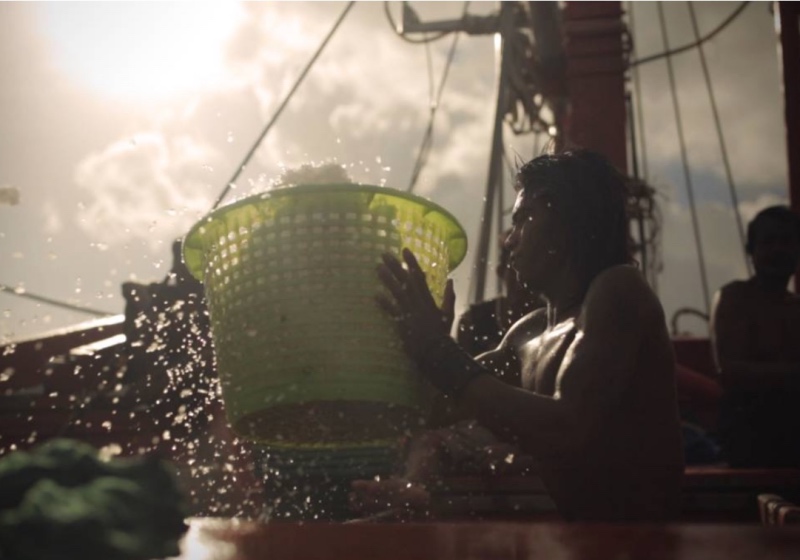The plight of workers trapped in slavery on Thai fishing boats has been cast in the spotlight at the Toronto International Film Festival, with the screening of a documentary aimed at making people think twice about the seafood they consume.
Ghost Fleet, a 90-minute film backed by Microsoft co-founder Paul Allen, follows the story of a Thai activist and a slavery survivor from Myanmar who risked their lives to free fishermen, some of whom were trapped on boats for years.

A scene from ‘Ghost Fleet’, a film about modern slavery and forced labour in the seafood industry in Thailand. PICTURE: Courtesy Vulcan Productions.
Thailand’s seafood sector has come under scrutiny in recent years as investigations uncovered widespread violations, including forced labour, on boats and in onshore processing facilities.
The film, which was expected to be shown on Saturday, provides insight into dramatic stories of fishermen trafficked from countries including Cambodia and Myanmar, said co-director Shannon Service.
“We want to start bringing consumers into this in a stronger way that really moves them to a point where they connect with the people on the other side of their plate,” she told the Thomson Reuters Foundation.
“When that happens, people are going to start asking where their fish comes from.”
Under growing consumer pressure and a European Union threat to ban its fish exports, Thailand has introduced a raft of measures to crack down on abuses in the multibillion-dollar sector, one of the world’s largest.
Those included banning the use of underage workers and requiring that fishermen are given contracts, but campaigners say the reforms are not adequate and abuses persist.
They urged Thailand’s government to enact promised legislation aimed at preventing forced labour in the industry, which employs about 600,000 people, half of whom are from other countries, according to the United Nations.
Chonticha Tangworamongkon, of the Bangkok-based Human Rights and Development Foundation, which offers legal aid to migrant workers, said she supports the government’s efforts so far, but added that more needs to be done.
“There are shortcomings in enforcement and a gap in the current legal framework,” she said.
Thailand in June became the first Asian nation to ratify a United Nations convention aimed at eliminating forced labour and has pledged to strengthen its legislation to outlaw the practice.
Jeffrey Waldron, a co-director, said he hoped the screening at the Toronto festival – a key showcase in the awards season that culminates with the Oscars – would give audiences an “emotional and powerful” depiction of the issue.
“We want to take that to a level that is unforgettable,” Waldron said.






